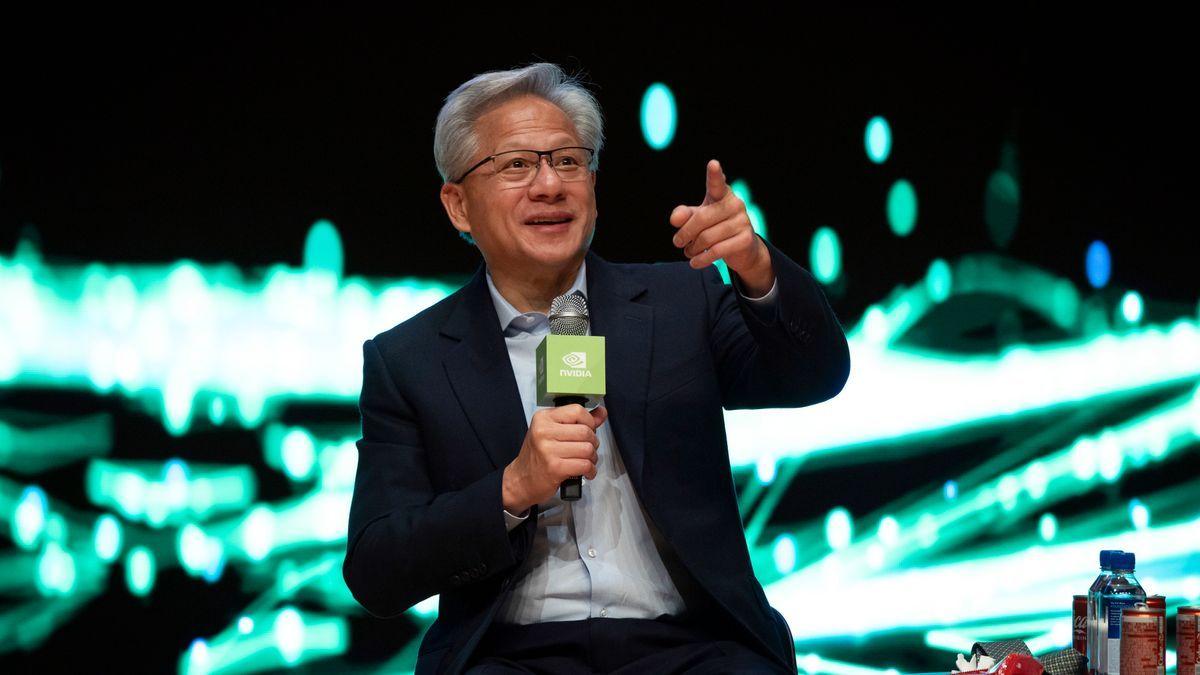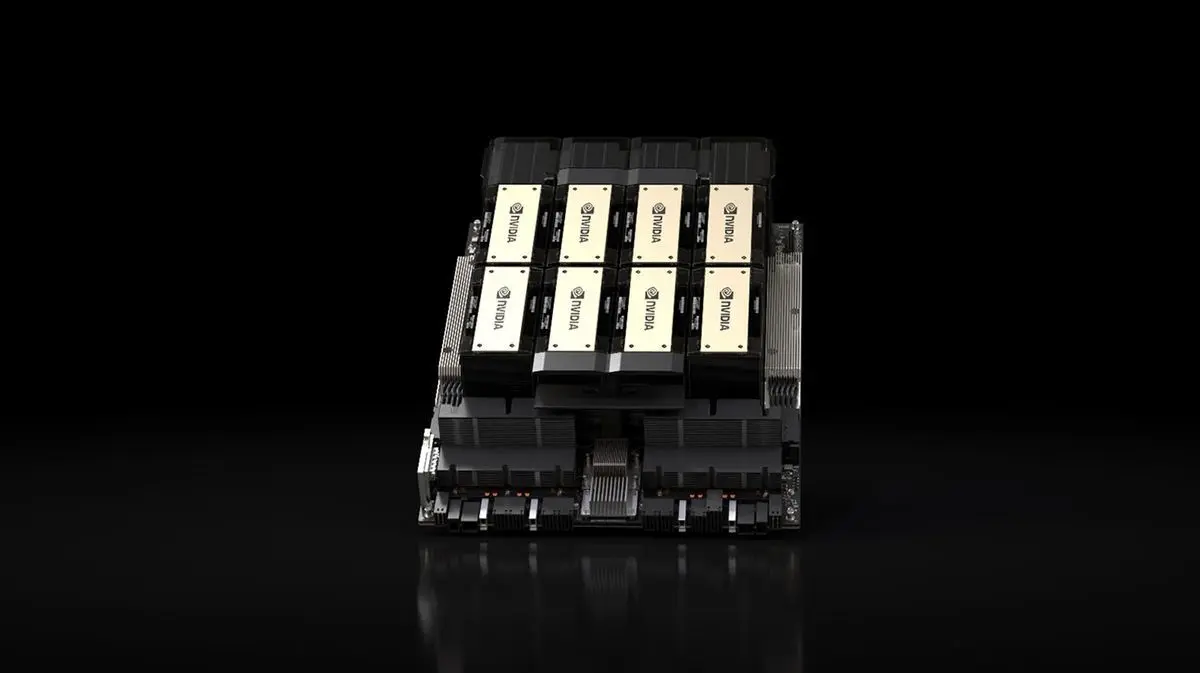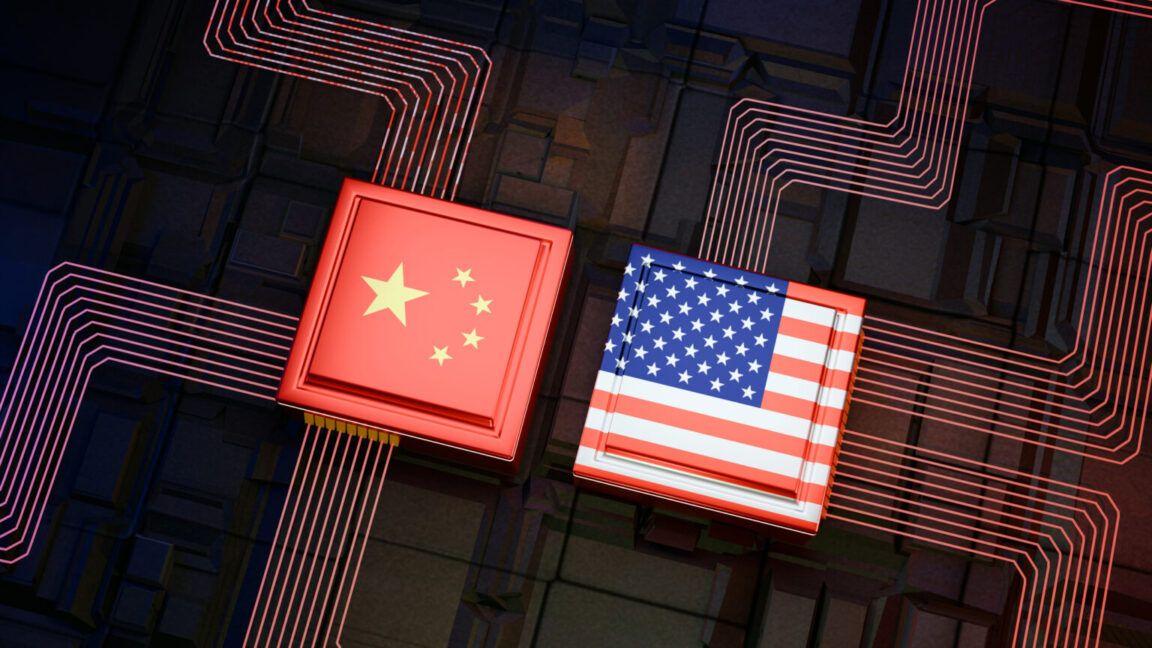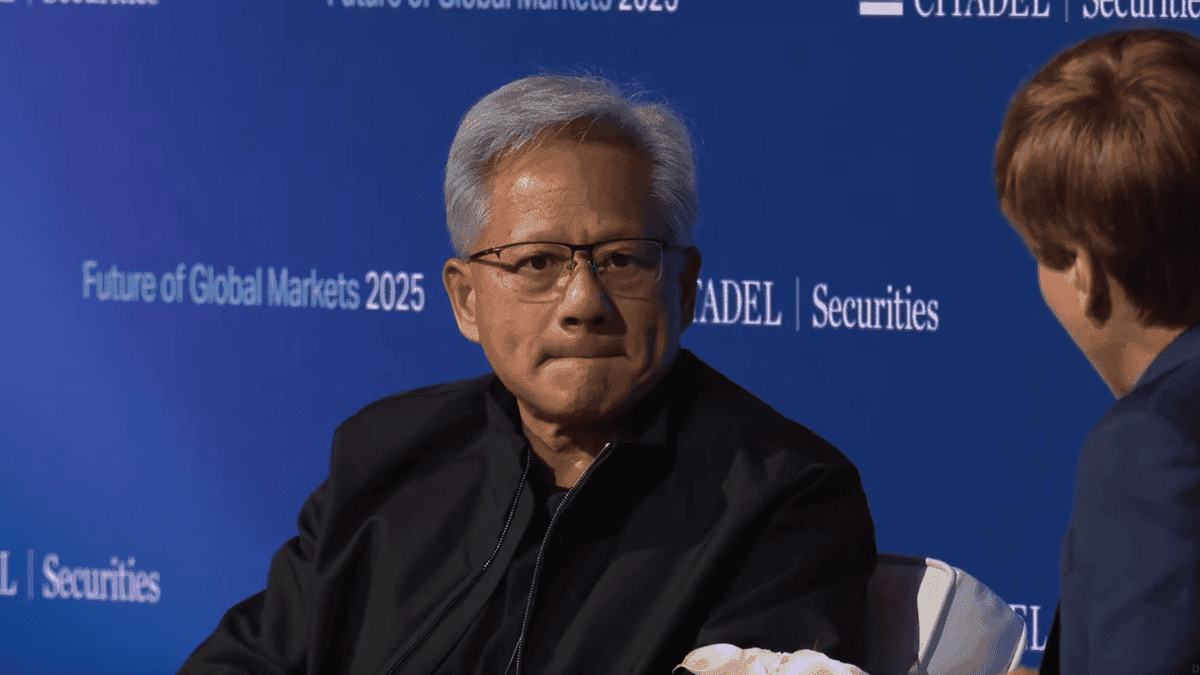NVIDIA CEO Denies AI Chip Diversion to China Amid Ongoing Controversy
2 Sources
2 Sources
[1]
Nvidia CEO Jensen Huang says 'There's no evidence of any AI chip diversion'
Nvidia CEO Jensen Huang says that there is no evidence of AI chip diversion to countries where the sale of said chips is prohibited, in response to questions at Computex 2025. Huang told Bloomberg that there is no evidence of diversions when it comes to its Grace Blackwell chips. Furthermore, he added that Nvidia's customers are well aware of the restrictions and that they are careful about it when selling to third parties. "Governments understand that diversion is not allowed, and there's no evidence of any AI chip diversion -- recognize our data center GPUs are massive; these are massive systems," Huang said during the surprise questioning. "The Grace Blackwell system is nearly two tons, and so you're not going to be shipping -- you're not going to be putting that in your pocket or your backpack anytime soon. And so, these systems are fairly easy to keep track of... but the important thing is that the countries and the companies that we sell to recognize that diversion is not allowed, and everybody would like to continue to buy Nvidia technology, and so they very well monitor themselves very carefully and they're quite careful about that." However, this doesn't seem to be the reality. After all, we've already heard of several instances of Nvidia AI GPUs getting past Washington's sanctions and getting into the hands of Chinese businesses. We've even seen one businessman showing off his smuggled H200 GPUs on X. Even as late as March 2025, there have been reports of Chinese entities using corporations registered in neighboring countries like Malaysia, Vietnam, and Taiwan to order these advanced chips and then reroute them to China. Singapore has already started cracking down on this practice, and the U.S. has also asked Malaysian authorities to keep an eye on this black market and shut it down. However, Malaysian imports of advanced GPUs still surged by over 3,400% in early this year, raising alarm bells. Huang also said that these servers are massive, weighing several tons, so tracking them shouldn't be difficult. But the company has also said that these AI chips are impossible to find after they're sold. That's why the U.S. Congress is considering legislation that would require companies to enable geo-tracking on high-end gaming and AI GPUs. Furthermore, weight and size are no issues when it comes to smuggling. After all, if stolen cars and SUVs can be smuggled across borders, then GPU servers are fair game as well, especially with the amount of money involved.
[2]
NVIDIA's CEO Claims There's No Evidence of AI Chips Going Into China, Says Grace Blackwell Servers Cannot "Fit In Pockets" To Go Undetected
NVIDIA's CEO has apparently taken a dig at industry rumors that say the firm's chips are being used in China, and claims that there's no evidence to back such rumors. There's a lot of uncertainty surrounding NVIDIA and its business in China, given that the US believes that Team Green's high-end AI chips are ending up in hostile nations, threatening national security. The US has been catering to this issue by implementing strict regulations, which have hindered NVIDIA's business in China tremendously, but CEO Jensen Huang believes that there's no sign of chip diversion to China, saying that the hardware is too difficult to smuggle across such nations. There's no evidence of any AI chip diversion. These are massive systems. The Grace Blackwell system is nearly two tons, and so you're not going to be putting that in your pocket or your backpack anytime soon. The important thing is that the countries and the companies that we sell to recognize that diversion is not allowed and everybody would like to continue to buy Nvidia technology. - NVIDIA's CEO via Bloomberg Well, chip diversion doesn't only include Grace Blackwell AI clusters being moved to China, it also takes into account AI hardware like H100 AI accelerators, which are said to be readily available in the region, despite US restrictions. So, Jensen's claim of NVIDIA's chips not being in China isn't entirely true, but we still are not to the point where rack-scale architecture is being smuggled to the region, such as the GB300 systems. Team Green doesn't look happy with the constant US regulations, which are said to have significantly impacted the company's influence in China. One of the primary sources through which China has been accessing NVIDIA's AI chips is by leveraging trade loopholes and importing from nations such as Singapore, which isn't "legally" wrong. NVIDIA's CEO might not have considered this when discussing the chip diversion. However, it won't be wrong to say NVIDIA won't have an easy time doing business with China anymore, since with new US regulations, the company's options for the domestic market have become limited, so in-house alternatives from Huawei have become a better choice. However, while NVIDIA has seen a compromise from China, the firm is eventually moving away from Big Tech and is now supplying hardware to governments, notably the Middle East. In the past few weeks, NVIDIA has grabbed orders for "millions of accelerators" and plans to build large-scale AI datacenters in countries like the UAE and Saudi Arabia.
Share
Share
Copy Link
NVIDIA's CEO Jensen Huang claims there's no evidence of AI chip diversion to restricted countries, despite reports suggesting otherwise. The controversy highlights the challenges in regulating high-tech exports and the global competition in AI technology.

NVIDIA CEO Denies AI Chip Diversion
NVIDIA CEO Jensen Huang has strongly denied allegations of AI chip diversion to countries where their sale is prohibited. Speaking at Computex 2025, Huang asserted, "There's no evidence of any AI chip diversion"
1
. He emphasized that NVIDIA's customers are well aware of the restrictions and are cautious when selling to third parties.The Size Argument
Huang pointed to the sheer size of NVIDIA's AI systems as a deterrent to smuggling. "The Grace Blackwell system is nearly two tons, and so you're not going to be putting that in your pocket or your backpack anytime soon," he stated
2
. This argument suggests that the massive scale of these systems makes them easy to track and difficult to divert illicitly.Contradicting Evidence
Despite Huang's assertions, reports indicate that NVIDIA AI GPUs have indeed found their way into Chinese businesses, circumventing Washington's sanctions. Instances of smuggling have been documented, including a businessman showcasing smuggled H200 GPUs on social media
1
.Loopholes and Smuggling Tactics
Chinese entities have reportedly been using corporations registered in neighboring countries like Malaysia, Vietnam, and Taiwan to order advanced chips and reroute them to China. This tactic has led to a significant surge in GPU imports in these countries, with Malaysian imports of advanced GPUs increasing by over 3,400% in early 2025
1
.Regulatory Responses
In response to these challenges, Singapore has begun cracking down on chip diversion practices. The U.S. has also requested Malaysian authorities to monitor and shut down this black market. Furthermore, the U.S. Congress is considering legislation that would require companies to enable geo-tracking on high-end gaming and AI GPUs
1
.Related Stories
NVIDIA's Business Challenges
The ongoing controversy and U.S. regulations have significantly impacted NVIDIA's business in China. While Huang maintains that there's no evidence of large-scale system diversion, smaller AI hardware like H100 AI accelerators are reportedly available in China despite restrictions
2
.Shifting Focus to New Markets
As NVIDIA faces challenges in the Chinese market, the company is pivoting towards new opportunities. Recent reports indicate that NVIDIA has secured orders for "millions of accelerators" and plans to build large-scale AI datacenters in Middle Eastern countries such as the UAE and Saudi Arabia
2
.References
Summarized by
Navi
Related Stories
Nvidia CEO Confirms No Plans to Ship Blackwell GPUs to China Amid Ongoing Trade Restrictions
07 Nov 2025•Business and Economy

Nvidia CEO Urges AI Export Rule Revision Amid Global Competition and China's AI Advancements
01 May 2025•Technology

Nvidia Set to Resume AI Chip Sales to China Amid Regulatory Shifts
10 Jul 2025•Technology

Recent Highlights
1
Pentagon threatens to cut Anthropic's $200M contract over AI safety restrictions in military ops
Policy and Regulation

2
ByteDance's Seedance 2.0 AI video generator triggers copyright infringement battle with Hollywood
Policy and Regulation

3
OpenAI closes in on $100 billion funding round with $850 billion valuation as spending plans shift
Business and Economy





